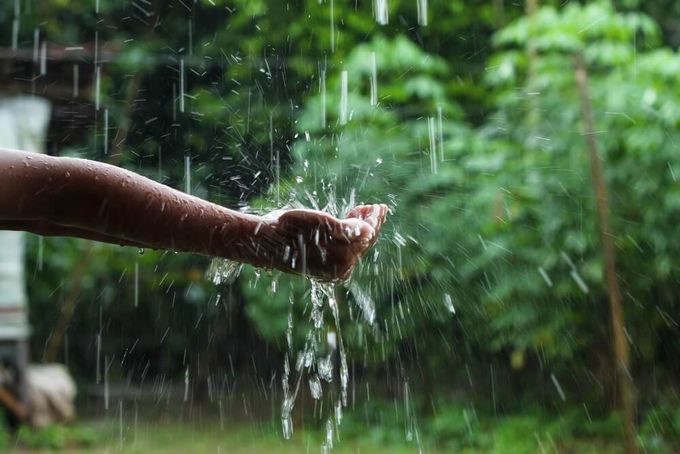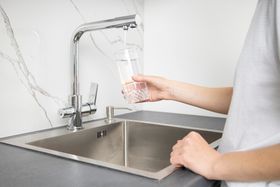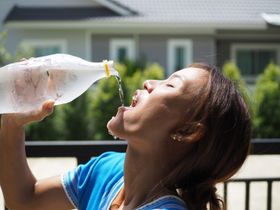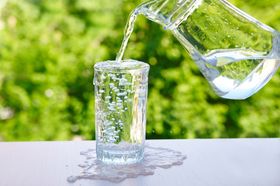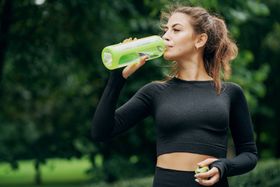Can I Drink Rainwater? Assessing the Risks and Benefits
Imagine a world where rain isn't just a pitter-patter on your window
Published January 14, 2024.
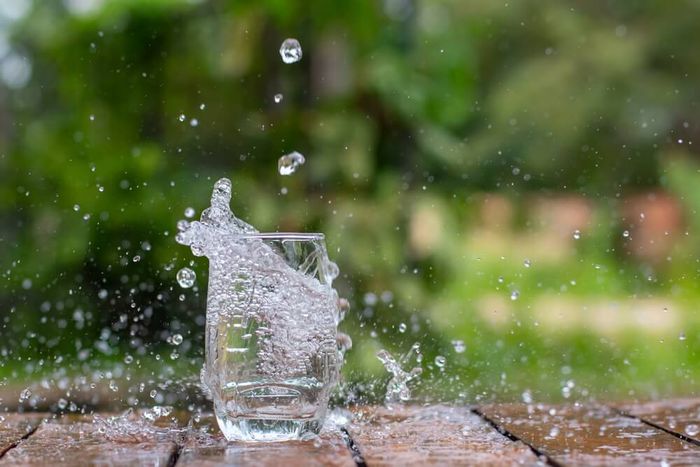
Have you ever wondered if collecting rainwater is the key to a sustainable water future? With technological advancements in filtration, we've relied less on it over time.
But, recent concerns about sustainability and climate change reignited interest in this age-old solution. So, let's assess the possible risks and benefits and see how you can collect rainwater safely.
» Do you know not all water is equal? Learn how to pick the healthiest water for you
Is Rainwater Safe To Drink?
Rainwater's reputation for purity has been up and down over time. People didn't fully understand waterborne diseases in the past, so they didn't always handle them safely. This carelessness led to occasional health problems.
Collected rainwater can be safe to drink, but its cleanliness depends on the collection area's cleanliness, the storage system's quality, and the presence of atmospheric and water pollutants.
Benefits of Drinking Rainwater
Some potential benefits of drinking rainwater include:
- Sustainability: Using rainwater reduces demand for treated water sources.
- Cost Saving: Harnessing rainwater for drinking can lower bills, especially in arid regions.
- Mineral Content: Rainwater is naturally soft and lacks the high mineral content of some groundwater sources, which can benefit those with urinary tract stones, according to a study from the University of Rome.
- Reduced Chemical Exposure: Untreated rainwater avoids chemicals like chlorine used in municipal supplies, decreasing toxin exposure.
How Rainwater Harvesting Rescues Communities
In regions like Australia, where water scarcity is a significant concern, many households install rainwater harvesting systems to supplement their needs. They have effectively reduced reliance on other sources and provided a reliable supply.
Similarly, India and parts of Africa have put into place harvesting initiatives for rural areas, resulting in improved access to clean drinking water and positive impacts on health and livelihoods.
» Find out everything there is to know about trihalomethanes in drinking water
Challenges and Risks of Drinking Rainwater
A few main challenges or risks associated with drinking rainwater are:
- Contamination: Potential contamination from pollutants like pesticides and herbicides from agricultural fields.
- Microbial Growth: Rainwater stored long-term can experience microbial growth like algae or bacteria without adequate filtration or tank maintenance.
- Quality Variability: Atmospheric conditions and collection surface cleanliness can impact rainwater quality.
- Limited Availability: The supply may be limited in low rainfall regions or during droughts.
How to Store and Collect Rainwater
- Keep the Collection Area Clean: First, use a well-maintained catchment or collection area, such as a roof. Clean gutters and downspouts regularly to prevent debris accumulation.
- Install a First Flush Diverter System: You can install a first flush diverter system to redirect the initial roof runoff away from storage tanks.
- Use High-Quality Filtration: A high-quality filtration system and disinfection methods, such as UV radiation, chlorination, and reverse osmosis can also remove bacteria and viruses.
Tip: Analyze historical rainfall patterns in your area and seek expert guidance on the best collection systems and treatment methods. If you want it to be your primary supply, consult local regulations on legality and specific guidelines.
» Discover important health benefits of filtered water
Quenching Your Thirst for Rainwater
By making intelligent choices and following the simple steps mentioned earlier, rainwater becomes a reliable, safe drinking source—an ally for conservation and self-reliance. When used responsibly by individuals or communities, it's a powerful way to ease pressure on water resourcing.
And here's an exciting twist: MAYU Swirl takes your experience to a new level. This water pitcher not only filters out toxins and microplastics but also gives your water a structural boost.




